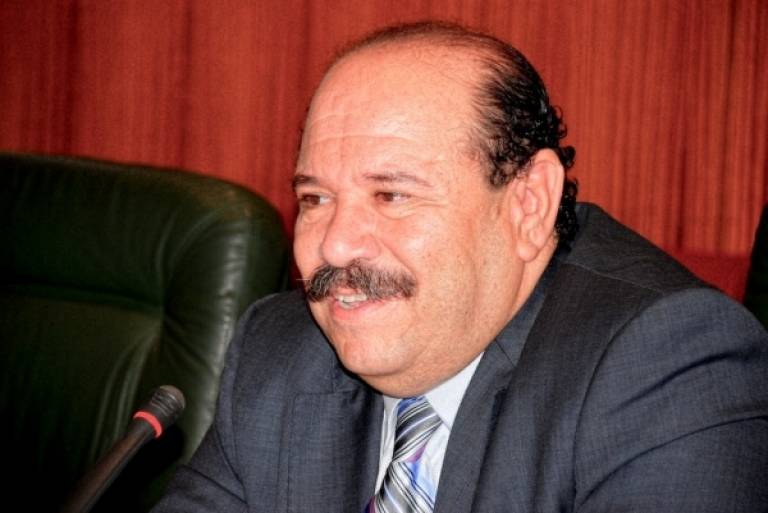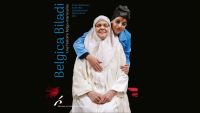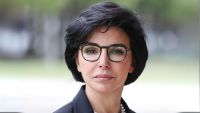In five years of existence, the CCME focused its research work on six specific groups, published more than 70 scientific productions closely related to the Moroccan emigration and its evolution since the 60s '. Mr Abdallah Boussouf, the General Secretary of the Council of Moroccans living abroad believes that the assessment of these “five years is positive "; because the council managed, since its inception, to put the finger on where the other European migratory policies have failed.
Further, Mr Boussouf considers that the Moroccan migration is a national question rather than political. The philosophy of the Advisory board being clear: “we are in favor of the integration of the migrants of Moroccan origin in their host countries” but “we consider that their link with their country of origin is essential ". A link showcased for the fifth consecutive year in the International book and edition fair.
For starters, the obvious question is: Five years after its creation, what is the logic that dominates the work of the Council of the Moroccan Community Abroad?
This logic is closely related to their duties. The Council is an advisory body. The research and analysis that affect the immigration of Moroccans of the world are the very essence of its existence. What the CCME does is the result of careful consideration and can in no way be subject to political pressures. To summarize we can say that CCME is a space for reflection and research.
What are the main issues that have captured the attention of the Council?
We discovered that the immigration is a set of complex and closely intertwined problems. It’s in fact impossible to handle them separately because they are tightly connected. We cannot, for example, handle the problem of languages without approaching that of the religions, the integration, the woman, the link with the country of origin …
It is necessary to give time to these issues; they require a thorough approach and cannot be resolved only by slogans. The expectations of the Moroccans of the world must be considered in host countries, where they exercise their citizen's duties, and in their country of origin. The globalization has an impact on the immigration and in fact makes it an international question.
Most of the political and economic transformations do not limit themselves to a category of a particular population or to a determined geography: the economic crisis affected all the categories of population including the Moroccans of the world.
Another element caught our attention: the lack of rigor in the treatment of the migration issue, and especially the disconnection from the realities of Moroccan migration. This requires scientific studies and field work corresponding to the academic standards. The work of the CCME during these 5 years was structured in this direction, because without scientific knowledge it is impossible to draw up public policies.
What is the approach adopted by the Council to address issues of immigration? What are the results of this approach?
We focused our thinking around six working groups: Religion, gender, culture, citizenship, skills and administration. These are interrelated issues.
Before creating the Council for the Moroccan community abroad, the Advisory Council on Human Rights (CCHR) conducted a series of interviews and discussions with Moroccans of the world, in Morocco and abroad. These discussions focused on various issues affecting the Moroccan immigration in order to best meet their needs. All expectations were part of a working group or another of those that had been defined.
Do you think the achievements of the CCME had a positive impact on The Moroccans of the world?
There is no doubt about it. The CCME has led to high-level public debates in Morocco and abroad. Moroccans of the world are the first in the heart of the national agenda. The Council has even managed, through its activities, to neutralize some stereotypes about the Moroccan immigration. The Moroccan community abroad was seen more as a working-force, especially those who immigrated in the 60s, but this community has undergone profound changes that have resulted in the emergence of political, artistic and intellectual elite, regardless of the gender.
The activities of the CCME allowed to make the diversity known and the transformations of immigration recognized, as well as to assert the Moroccan skills in Morocco and abroad.
Are there other positive aspects of this impact?
I recall the example of our first participation in the International Book and edition fair (SIEL): Personalities of Moroccan origin came from around the world and from various horizons (cultural, academic, political, associative) and spoke in all languages and gave de facto a universal sense to Morocco.
Furthermore, it is important to know that within the Council, several ministries are involved as member observers in the activities involving politics, members of Parliament and actors of the civil society… All this mobilization aims at integrating the component “Moroccans of the world” into the public policies.
Thus, according to you we can clearly say that the assessment of the work of the council is positive?
I have no doubt about it. We can feel it when interacting with our foreign partners; they encourage us and congratulate us on overall positive results in five years of existence only. Moreover, even the European countries, with their immense financial and scientific investment and the diverse institutions created for more than thirty years for the question of the immigration have failed in this regard. Indeed, the German chancellor Angela Merkel, the British Prime Minister and the High Council for Integration in France, have all declared that the projects of integration failed in these countries. This is mainly due to the security and economic approach adopted in the treatment of the question of immigration. We are thus convinced that this problem is much more complex, due to its multiple dimensions and must be tackled through a global approach.
As for Morocco, we have to admit it has become interested in the immigration only recently. From my point of view, it is important to keep a little of serenity towards this problem by avoiding politicizing it especially that the politics are not being in the center of the expectations of the Moroccans of the world and there is no question to undergo tensions on this matter. It is necessary to understand that it is about the future of about 4 million Moroccans and Morocco as a whole.
What would you say to those who believe that the consultative mission of the Council is not still achieved?
As I previously mentioned, the Moroccan immigration is complex and its treatment requires some scientific knowledge, without which it is moreover impossible to express opinions. We thus chose to deepen even more this knowledge because it is not so much the production of the consultative notices that matters to us, but the capacity of these notices to meet the expectations of Moroccans of the world.
This choice will undeniably lead to some criticism, but it is the choice which we made in all honesty. We decided to place the question of the Moroccan immigration over the personal interests …
What are according to you the biggest constraints?
The first constraint is that the consultative character is not well included. The best illustration is the number of criticisms sent to the Council for executive decisions which we can’t handle anyways due to the consultative nature of our institution.
The second constraint concerns the resources, which are limited for the moment, the treatment of the question of the immigration requires subsequent resources and investment and the European countries experienced it well before we did.
The third constraint is the increase in the number of institutions dealing with the immigration. The problem is not really the number of these institutions but their approaches which are not always complementary.
Can we discuss constraints from Moroccans of the world themselves?
Moroccans of the world want solutions to their immediate problems, which is quite understandable, except that it falls within the executive branch and not the prerogative of the Board. In addition to its advisory role, the CCME is also a forward-looking institution: it is responsible for the monitoring and evaluation of public policies of the Kingdom to understand the changes in immigration.
The main constraint is the "explosion" of the Moroccan community abroad: the network of associations abroad is not structured, compared to other communities such as the Turkish in Germany, the Netherlands and Belgium.
Organizing the social structure of the Moroccans abroad is one of the major challenges.
Take the example of Moroccans in the Netherlands who have seen their allocations reduced significantly. If the associations were fairly organized, they could propel this issue to the heart of the political debate and the Dutch justice.
After the CCME was made constitutional in 2011, what are the priorities of the next council?
After five years of experience and considerable scientific research, the CCME will further consolidate its knowledge of the Moroccan immigration, especially with the rapid changes that it witnesses.
The next step will surely interest more young people. We recently saw young Moroccans of the world participate in wars in conflict zones such as Libya, Syria, or in some sub-Saharan countries and this should sound the alarm bell! This kind of behavior can threaten the security of the host countries and Morocco and harm the image of our community abroad and can destroy their future.
There is also the problem of school failure, which can be considered as the main cause of extremism and crime. In European prisons there is a strong presence of young Moroccans, and it's not about the security of the host country, but the image of the country of origin also.
In conclusion, the CCME participating for the fifth consecutive year at SIEL; what is the purpose behind the participation?
The Council is not a cultural player. The main purpose of its participation is again to share the talents of Moroccans of the world who are writers, artists and intellectuals. That shows that this migration has produced literature, poetry, art, philosophy in all languages and is no longer a working force migration.
I take this opportunity to invite the authorities in charge of education in Morocco to integrate talented people of our Diaspora in school and in university curricula, as it is an important part of our culture and our history.










